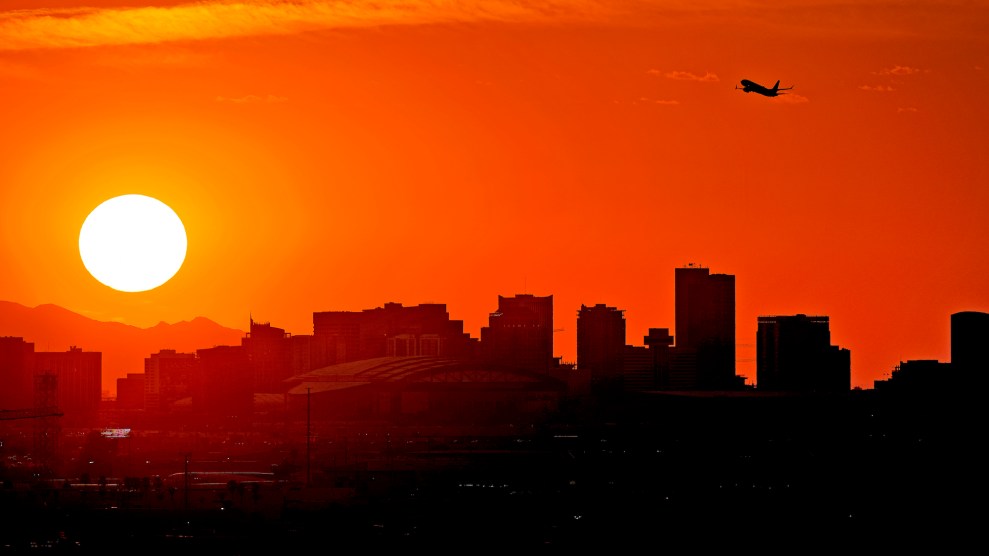
Matt York/AP
Wildfires raged in Canada and in 10 countries around the Mediterranean. Heat waves blanketed much of North America, Europe, and Asia. Each day from July 3 to July 6 set records for Earth’s hottest day ever. Now, the World Meteorological Organization and Copernicus, a European Union climate observation agency, have announced that July is “extremely likely” to be the hottest month ever recorded.
“The era of global warming has ended; the era of global boiling has arrived,” United Nations Secretary-General António Guterres declared this week in a speech at UN headquarters in New York on Thursday.
The last hottest month on record came in July 2019, when the surface air temperature averaged 61.9 degrees Fahrenheit globally. In comparison, the first 23 days of this month averaged 62.5 degrees Fahrenheit. Since April, sea surface temperatures have remained at unprecedented highs for the time of year.
In China, the northwestern desert town of Sanbao set an all-time record for the country when temperatures reached 126 degrees Fahrenheit. In Italy, where the city of Sardinia baked at 118 degrees. And Phoenix saw 30 consecutive days of temperatures hitting 110 degrees Fahrenheit.
On Thursday, President Biden instructed the Department of Labor to issue its first-ever Hazard Alert for heat, reminding employers of their obligation to protect workers against heat illness or injury. OSHA will be ramping up inspections in the construction and agriculture industries, whose workers are at the highest risk of heat-related hazards. The agency is also working on a national standard for workplace heat-safety rules.
Research released last week by an international group of scientists concluded that the extreme temperatures recorded in the US Southwest and northern Mexico, as well as southern Europe, would have been “virtually impossible…if humans had not warmed the planet by burning fossil fuels.”
Globally, the high temperatures coincide with this year’s El Niño event, a naturally occurring climate pattern when temperatures rise in the tropical Pacific. But human-caused emissions are the main driver of the soaring temperatures this month, climate experts stressed. “The need to reduce greenhouse gas emissions is more urgent than ever before,” World Meteorological Organization leader Petteri Taalas said in a statement Thursday. “Climate action is not a luxury but a must.”


















